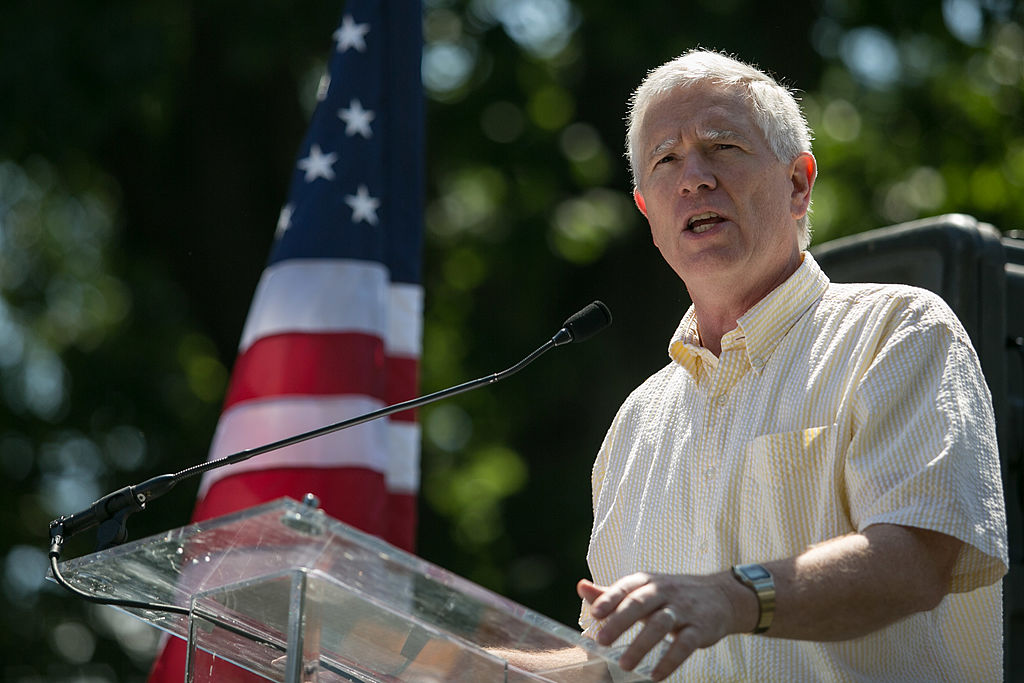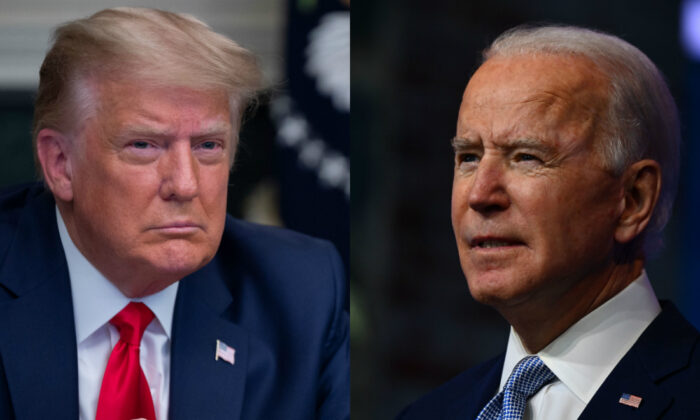President Donald Trump could win a second term if the 2020 election goes to the secondary system set up to support the Electoral College, Rep. Mo Brooks (R-Ala.) said this week.
If neither Trump nor Democratic presidential candidate Joe Biden get 270 or more electoral votes, then the House of Representatives would pick the next president.
“So many submissions of Electoral College votes by state have been rejected, that no candidate has the required 270 Electoral College vote majority, in which case the presidency would be decided by the House of Representatives.”
But the system has each state delegation getting a single vote. Republicans have the majority in that scenario.
“In the House of Representatives, there are 26, maybe 27 delegations that have a majority Republican congress, and then there are 20 delegations that have majority Democrat members of Congress. So, that’s the breakdown, with three or four being a tie. We’ve got one undecided race in Iowa that could flip that from the undecided column, or tie column, to the GOP,” Brooks said on FM Talk 1065.
“I can’t speak for any other senators or any other congressmen. But in my judgment—having been involved in politics now for a number of decades, and having seen the things that I have seen—in my judgment, Joe Biden did not win the Electoral College, if there was some way we could limit the determination of the winners of the Electoral College to lawful votes cast by eligible American citizens,” Brooks added.
If the House ends up choosing the president, the Senate picks the vice president. Republicans have a 50–48 majority with two runoffs in Georgia taking place in January 2021.

Others have also floated the secondary path, including Harvard Law School professor Alan Dershowitz.
“What he’s trying to do is to deny Joe Biden 270 votes, by challenging in Pennsylvania, Georgia, in Nevada, in Michigan, in Arizona,” Dershowitz said recently, referring to lawsuits filed and recounts requested in the battleground states.
“If he can keep the Biden count below 270, then the matter goes to the House of Representatives, where, of course, there is a Republican majority among the delegations of states, and you vote by state if it goes to the House. He’s trying to follow the playbook of three elections of the 19th century.”
The indecisive election scenario first played out in 1801, ending with Thomas Jefferson being chosen as president.
In 1825, both candidates failed to win enough electoral votes, triggering the House vote. The House chose John Adams even though he received fewer electoral votes than Andrew Jackson.
The last time the situation took place was in 1877. No House vote was needed because Republicans and Democrats made a compromise to award controversial ballots to Rutherford Hayes in exchange for the removal of federal soldiers from southern states.

No comments:
Post a Comment